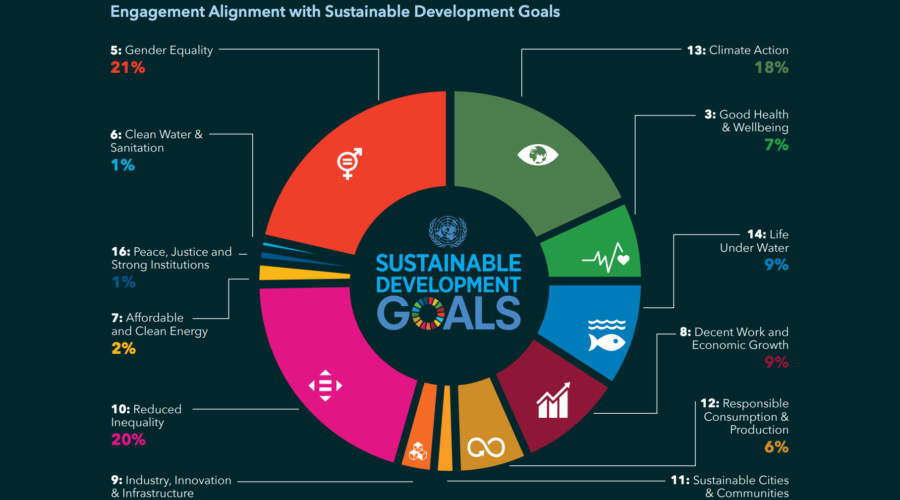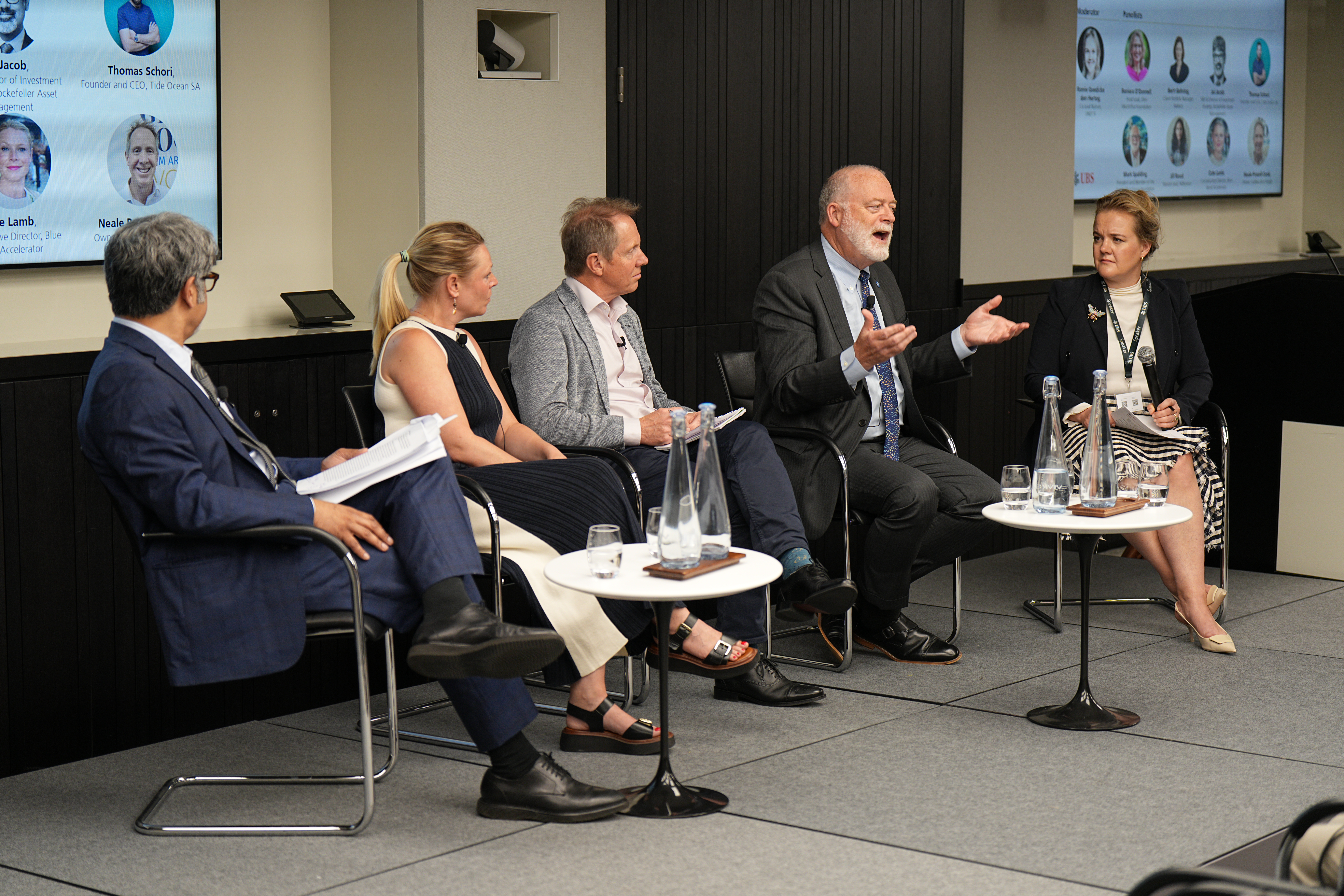On April 20, Rockefeller Asset Management (RAM) released their 2020 Sustainable Investing Annual Report detailing their accomplishments and sustainable investing objectives.
As a decade-long partner and advisor of Rockefeller Capital Management, The Ocean Foundation (TOF) has helped identify public companies whose products and services meet the needs of a healthy human relationship with the ocean. Through this partnership, TOF brings its deep climate and ocean expertise to provide scientific and policy validation and support our idea generation, research and engagement process — all to help bridge the gap between science and investing. We have also joined shareholder engagement calls for companies across our thematic equity offerings, helping inform our approach and offering suggestions for improvement.
We were honored to play a role in the development of the Annual Report, and commend RAM for their sustainable ocean investment efforts.
Here are some key ocean-centric takeaways from the Report:


2020 Notable Mentions
- Among RAM’s list of 2020 accomplishments, they collaborated with TOF and a European partner on an innovative global equity strategy that generates alpha and outcomes alongside Sustainable Development Goal 14, Life Below Water.
- RAM, in collaboration with TOF, also offered a Climate Solutions UCITS Fund to the European market through the Rockefeller Capital Management UCITS ICAV platform.
Climate Change: Impact and Investment Opportunities
At TOF we believe that climate change will transform economies and markets. The human disruption of the climate poses a systemic threat to financial markets and the economy. However, the cost of taking action to reduce human disruption of the climate is minimal relative to the harm. Thus, because climate change is and will transform economies and markets, firms producing climate mitigation or adaptation solutions will outperform the broader markets over the long run.
The Rockefeller Climate Solutions Strategy, a nearly nine-year collaboration with TOF, is a global equity, high conviction portfolio investing in firms offering ocean-climate nexus solutions across eight environmental themes, including water infrastructure and support systems. Portfolio managers Casey Clark, CFA, and Rolando Morillo spoke about climate change and where investment opportunities lie, with the following points:
- Climate change impacts economies and markets: This is also known as the “climate flow effect”. Greenhouse gas emissions from making things (cement, steel plastic), plugging things in (electricity), growing things (plants, animals), getting around (planes, trucks, cargo) and keeping warm and cool (heating, cooling, refrigeration) increase seasonal temperatures, causing sea levels to rise and changing ecosystems — which damages infrastructure, air and water quality, human health, and power and food supplies. As a result, global policy, consumer buying preferences and technologies are transforming, creating new opportunities in key environmental markets.
- Policymakers are responding to climate change across the globe: In December 2020, E.U. leaders agreed that 30% of total expenditure from the E.U.’s budget for 2021-2027 and Next Generation EU would target climate-related projects in hopes of achieving a 55% greenhouse gas emission reduction by 2030 and carbon neutrality by 2050. In China, President Xi Jinping pledged carbon neutrality before 2060, while the U.S. Administration is also actively committing to climate and environmental policy.
- Investment opportunities have arisen from shifting economic policies: Companies may start manufacturing wind blades, producing smart meters, transitioning energy, planning for disaster, building resilient infrastructures, re-engineering the power grid, deploying efficient water technologies, or offering testing, inspection, and certifications for buildings, soil, water, air, and food. The Rockefeller Climate Solutions Strategy hopes to identify and assist these companies.
- Rockefeller’s networks and scientific partnerships are helping to support the investment process: TOF has helped connect The Rockefeller Climate Solutions Strategy with experts to understand the public-policy environment for topics such as offshore wind, sustainable aquaculture, regulation of ballast water systems and emissions scrubbers, and the impacts of hydroelectric power. With the success of this collaboration, The Rockefeller Climate Solutions Strategy hopes to leverage their networks where no formal partnerships exist, for example, connecting with the Rockefeller Foundation about aquaculture and with an NYU Professor of Chemical and Biomolecular Engineering about green hydrogen.
Looking forward: 2021 Engagement Priorities
In 2021, one of Rockefeller Asset Management’s top five priorities is Ocean Health, including pollution prevention and conservation. The blue economy is worth $2.5 trillion and is expected to grow at twice the rate of the mainstream economy. With the launch of the thematic Ocean Engagement Fund, Rockefeller and TOF will work with mainstream companies to prevent pollution and increase ocean conservation.







